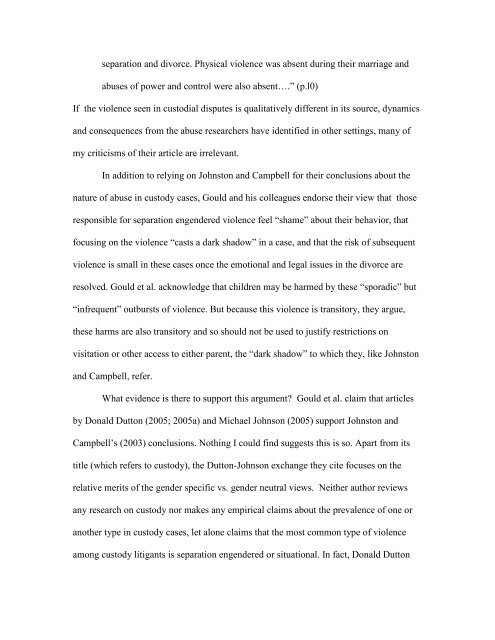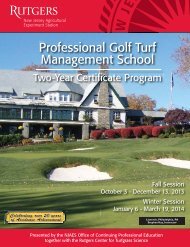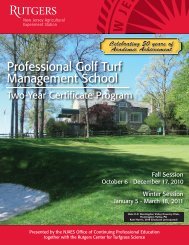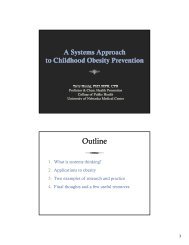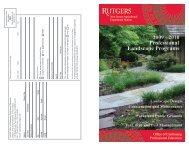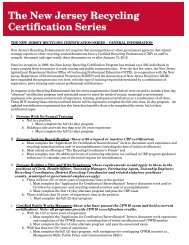Rethinking Child Custody, Domestic Violence - Rutgers NJAES ...
Rethinking Child Custody, Domestic Violence - Rutgers NJAES ...
Rethinking Child Custody, Domestic Violence - Rutgers NJAES ...
You also want an ePaper? Increase the reach of your titles
YUMPU automatically turns print PDFs into web optimized ePapers that Google loves.
separation and divorce. Physical violence was absent during their marriage andabuses of power and control were also absent….” (p.l0)If the violence seen in custodial disputes is qualitatively different in its source, dynamicsand consequences from the abuse researchers have identified in other settings, many ofmy criticisms of their article are irrelevant.In addition to relying on Johnston and Campbell for their conclusions about thenature of abuse in custody cases, Gould and his colleagues endorse their view that thoseresponsible for separation engendered violence feel “shame” about their behavior, thatfocusing on the violence “casts a dark shadow” in a case, and that the risk of subsequentviolence is small in these cases once the emotional and legal issues in the divorce areresolved. Gould et al. acknowledge that children may be harmed by these “sporadic” but“infrequent” outbursts of violence. But because this violence is transitory, they argue,these harms are also transitory and so should not be used to justify restrictions onvisitation or other access to either parent, the “dark shadow” to which they, like Johnstonand Campbell, refer.What evidence is there to support this argument? Gould et al. claim that articlesby Donald Dutton (2005; 2005a) and Michael Johnson (2005) support Johnston andCampbell’s (2003) conclusions. Nothing I could find suggests this is so. Apart from itstitle (which refers to custody), the Dutton-Johnson exchange they cite focuses on therelative merits of the gender specific vs. gender neutral views. Neither author reviewsany research on custody nor makes any empirical claims about the prevalence of one oranother type in custody cases, let alone claims that the most common type of violenceamong custody litigants is separation engendered or situational. In fact, Donald Dutton


